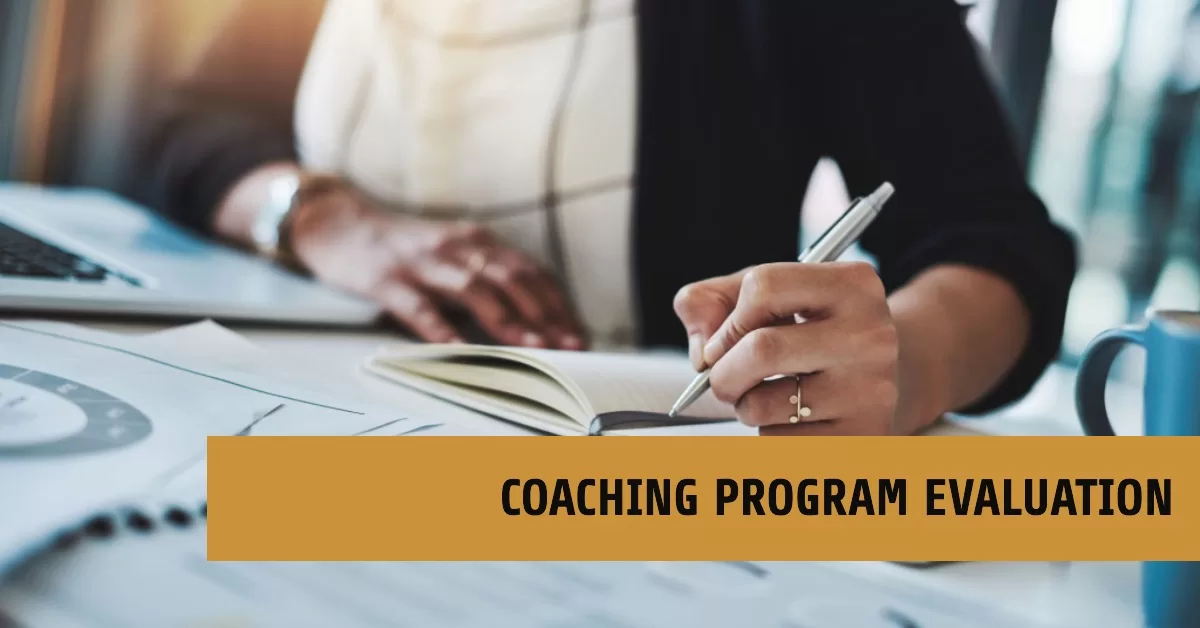In today’s competitive marketplace, it is crucial for leaders and managers to apply innovative techniques for employee development. One of the key dimensions for achieving organizational success is performance coaching and management. In this article, we will discuss the fundamental coaching skills required for mastery in the workplace and how to choose the right performance coach certification to equip you with these essential tools.
Table of Contents
- 1 Why Are Fundamental Coaching Skills Essential for Leaders?
- 2 Which Coaching Skills Should I Focus On Improving?
- 3 How Can I Choose the Right Performance Coaching Course?
- 4 What Are the Key Steps to Implementing Performance Coaching in the Workplace?
- 5 How Can I Measure the Success of My Coaching Skills in My Organization?
- 6 Questions and Answers
- 7 Summary
Why Are Fundamental Coaching Skills Essential for Leaders?

Fundamental coaching skills are essential for leaders as they play a crucial role in nurturing, guiding, and bringing out the best in their team members. Effective coaching enables leaders to create an environment where employees feel motivated, engaged, and empowered to fulfill their potential. It also enables leaders to understand better the needs, strengths, and aspirations of their team members, thus helping them allocate tasks and challenges appropriately, driving both individual growth and collective progress.
Moreover, coaching skills equip leaders with the ability to develop clear communication channels, promote constructive feedback, and foster a culture of continuous learning and improvement. By instilling these values within the team, leaders not only enhance productivity and performance but also encourage employees to proactively contribute their ideas and solutions, cultivating innovation and adaptability in the ever-evolving business landscape.
Furthermore, effective coaching aids in promoting a sense of ownership, responsibility, and accountability among team members. When leaders demonstrate genuine care and support for their employees’ development, it results in increased trust, improved morale, and stronger commitment toward the collective vision and goals. In essence, fundamental coaching skills are indispensable for contemporary leaders, as they empower them to create an engaged, dynamic, and high-performing workforce that can successfully navigate the complexities of the modern business world.
Apart from the already mentioned benefits, there are also others and we shall now address them in more detail.
Developing Effective Employee Relationships
Acquiring fundamental coaching skills enables the leader to establish trust and highlight their position within their team. Coaching effectively improves overall communication and enhances retention, ensuring that employees feel valued and supported. It also allows the leaders to build bonds that last longer. Developing such bonds with team members helps cultivate an honest and transparent environment which further translates to greater success.
Boosting the Overall Performance of the Organization
By applying coaching fundamentals, leaders can help employees reflect on their strengths and areas for improvement. This empowers individuals to take charge of their professional development, leading to increased innovation and productivity. Then, one can use this heightened productivity to induce positive changes within the company.
Enhancing Leadership Skills and Professional Development
Performance coaching allows leaders to grow, as mastering these techniques requires ongoing learning and self-reflection. Engaging in timely, effective coaching conversations supports the leader’s growth and development, which in turn positively impacts the entire organization. In result, such a leader, end up well-prepared for any upcoming obstacles and has a greater chance to overcome potential challenges.
Which Coaching Skills Should I Focus On Improving?

In the pursuit of personal and professional growth, it is undeniably crucial to identify, assess and nurture specific coaching skills, which will aid in the development of increasingly effective practice. To begin with, honing one’s active listening abilities is instrumental in laying the foundation for successful communication, facilitating empathy and rapport with clients. Simultaneously, the refinement of questioning techniques, particularly the strategic use of open-ended inquiries, can promote an exploratory, problem-solving mindset, thus empowering clients to unveil new perspectives and solutions.
Equally noteworthy is the significance of developing a heightened sense of self-awareness, as greater cognizance of one’s own values, prejudices, and strengths will contribute to the integration of more authentic and adaptive approaches to coaching. Furthermore, it is essential for coaches to foster a non-judgmental and supportive environment, which will encourage clients to express their thoughts and emotions with confidence and trust.
Lastly, the role of goal-setting and action planning in a coaching context cannot be overstated, demanding the careful alignment of realistic, measurable milestones with client aspirations. The ability to provide clear, constructive feedback and to engage in ongoing reflection and evaluation is also integral to optimizing one’s coaching efficacy. In conclusion, prioritizing the advancement of these proficiencies will undoubtedly lead to substantial benefits, both for coaches and those they serve.
Active Listening and Insight Awareness
One of the core elements of coaching is active listening, which includes understanding the employee’s perspective and encouraging them to communicate openly. By mastering this skill, leaders can identify insights and help employees convert these into actionable plans. Active listening is one of the most important leadership skills as it enables the leaders to actually understand the ideas of other people and respond to them appropriately.
Asking Powerful Questions to Promote Self-Reflection
Asking thought-provoking questions during coaching sessions creates a supportive learning environment that encourages self-reflection. This approach enables employees to examine their beliefs, values, and behaviors to improve their performance over time.
Providing Valuable Feedback and Creating Action Plans
Performance coaching involves offering constructive feedback and helping employees develop actionable plans for improvement. This skill requires maintaining a delicate balance of support, challenge, and encouragement, which aids employees in achieving their professional goals. With the help of such a skillset, leaders can empower their teams by highlighting areas for improvement and helping others reach their full potential both professionally and personally.
How Can I Choose the Right Performance Coaching Course?

In order to select the most suitable performance coaching course, it is crucial to meticulously evaluate several key factors that will facilitate the achievement of your specific personal and professional objectives. Initially, determining your precise goals and requirements is of paramount importance, as this will aid in ascertaining the type of course that aligns with your aspirations.
It is advisable to conduct comprehensive research on the various course offerings available in the market, encompassing aspects such as course content, duration, delivery format, and accreditation status. A diligent comparison of each course’s merits in relation to your predetermined goals will contribute significantly to an informed decision-making process.
You should also be considering the instructors’ expertise and credentials is essential, as their experience and proficiency can greatly impact the efficacy of the course. Lastly, assessing the practical applicability and potential return on investment of the course should play a pivotal role in your final verdict, ensuring that the chosen performance coaching course will ultimately yield the desired outcomes and contribute to your holistic professional development.
Evaluating the Course Content and Learning Outcomes
Review the course objectives to ensure they align with your desired goals. A comprehensive performance coach certification should cover fundamental coaching skills, the coaching process, and the role of a coach within organizations. The biggest mistake one can make is to enroll in a course that doesn’t align with their career path as it might end up being a complete waste of time. Therefore, evaluating the course content and learning outcomes should be a priority.
Considering Professional Qualifications of the Coaching Trainers
When evaluating a coaching course, it is essential to consider the experience and qualifications of the course trainers. Look for courses led by certified global coaches or those recognized by a professional coaching federation. A good way to determine if the instructor is qualified enough is to look at what qualifications and certifications they possess themselves and who have they already worked with. This should provide some information on whether the coach is worth your attention or not.
Assessing the Benefits and Cost of the Course
Weigh the benefits of the course against its cost. The ideal performance coaching course should deliver value by improving your coaching skills, addressing individual competency gaps, and providing you with strategies for measuring results. One of the crucial factors is the return on investment, meaning the course should pay off. To put it simply, paying a substantial amount of money for a course that doesn’t equip you with the skills allowing you to increase your income meaningfully is not the best way to go.
What Are the Key Steps to Implementing Performance Coaching in the Workplace?

Implementing performance coaching in the workplace is a well-structured approach designed to optimize employees’ potential and enhance an organization’s overall performance. The first key step entails establishing a clear and viable coaching framework, which encompasses defining the goals, objectives, and targeted outcomes of the coaching process. This framework serves as the foundation upon which the coaching relationship is built, ensuring alignment with the company’s strategy and culture.
Secondly, it is essential to identify the appropriate stakeholders, including employees who can greatly benefit from coaching, as well as suitable coaches who are adept at providing tailored guidance and support. These individuals must possess the requisite expertise, experience, and interpersonal skills, to effectively facilitate performance improvement.
Moreover, the coaching process necessitates setting specific expectations, deliverables, and timelines, as well as determining the appropriate methods of tracking progress and measuring success. Regular monitoring and feedback sessions are vital in maintaining open lines of communication, identifying challenges, and adapting the coaching strategy as needed.
On top of that, it is imperative to cultivate a conducive environment for coaching, characterized by open-mindedness, commitment, and trust, to empower employees to actively engage in problem-solving, knowledge-sharing, and self-improvement. Ultimately, the successful implementation of performance coaching relies on the cooperation of all stakeholders, accompanied by a sustained commitment to continuous learning and development.
Building Awareness and Buy-in From Senior Leadership
Ensure that senior management understands the value and benefits of coaching, as they play a vital role in supporting the implementation of a coaching culture. Any potential benefits that can result from participating in a coaching program should be explained to senior management in detail if they are not aware of the usefulness of such programs. Otherwise, it might lead to a situation where senior management is convinced that junior employees are trying to force reckless ideas onto them which further results in rejecting participation in coaching programs. Ideally, the benefits of coaching programs should be explained to the senior management by a coaching professional who has already established some sort of rapport with the managers.
Designing a Coaching Culture and Choosing the Right Coaching Style
Establish a structured coaching process that fits the needs of your organization. Identify the most effective coaching style for your team, whether it’s one-on-one sessions or group coaching. Aim to design a coaching culture that aligns with the personalities, goals, and needs of both the employees and the management. When working in a professional environment, it is crucial to develop an atmosphere that is positively perceived by the personnel.
Measure and Improve on Coaching Performance
Regularly assess the overall effectiveness of your coaching efforts. Utilize feedback from employees and leaders to improve your coaching techniques and ensure ongoing development. The effectiveness of any coaching program should be measured by using the right key performance indicators; otherwise, you may never find out if a certain program actually equipped you with the right skills or not.
How Can I Measure the Success of My Coaching Skills in My Organization?

In order to gauge the efficacy of one’s coaching skills within an organizational context, it is imperative to employ a systematic approach that considers both tangible and intangible indicators of success. One key quantitative measure could involve tracking the progress of team members through the attainment of predefined objectives and key performance indicators (KPIs) relative to the support and guidance provided in coaching sessions. Regularly documenting these achievements can serve as concrete evidence of the value that coaching interventions bring to the individuals’ professional development and the organization as a whole.
Beyond numerical data, qualitative feedback procured from mentees and stakeholders can offer invaluable insight into the effectiveness of the coaching methods utilized. Anonymous surveys and open forums encourage candid reflections on areas for improvement, as well as the identification of those techniques that have resonated most positively. Supplementing these subjective assessments with benchmarks from industry best practices can provide an even more comprehensive understanding of the coach’s performance.
Lastly, continuous self-assessment, self-reflection, and a commitment to ongoing professional development can further contribute to the coach’s ability to discern the true extent of their impact within the organization. By synthesizing these diverse forms of measurement, one can successfully evaluate and refine their coaching skills, fostering a culture of growth and continuous learning for all members of the organization.
Utilizing Employee and Leader Feedback
Collect feedback from employees and leaders to determine their satisfaction with coaching sessions and identify areas for improvement. Include these insights in future coaching endeavors to enhance their effectiveness. This strategy will allow you to find out whether the team is responding to the program well and what are their feelings toward it.
Tracking Performance Improvements and Professional Development
Monitor the progress of employees who have participated in coaching. Assess the impact of your coaching efforts on individual performance, skill development, and overall job satisfaction. These objective measurements will help you determine if the participants have managed to increase their performance after graduating from the program. If the performance does not increase – it shall remain clear the coaching process wasn’t successful.
Evaluating the Return on Investment for Coaching Sessions
Analyze the financial benefits of coaching relative to the costs incurred. Measuring the return on investment can help justify continued resources and support for performance coaching initiatives. This can be done by comparing sales, conversions, etc., before and after implementing the coaching program to help you determine if there is any tangible improvement in the company’s performance.
Questions and Answers

Couldn’t find specific answers regarding formal associations’ requirements for becoming a professional coach or other, related issues? Read through our Q&A section to find your answers!
Q: How does performance coaching training benefit a beginner?
A: Performance coaching training helps beginners develop essential skills such as active listening, insight generation, awareness of self and employee motivations, and effective feedback. These skills are critical in creating a positive work environment and driving business success.
Q: What is the role of learning and reflection in performance coaching?
A: Learning and reflection are critical aspects of performance coaching as they help coaches and their clients gain insight and awareness into their own strengths, weaknesses, and barriers. This understanding allows both parties to focus on actionable steps to improve performance and achieve their vision of success.
Q: What should I expect from a performance coaching workshop?
A: A performance coaching workshop typically involves a combination of theoretical understanding and practical activities. Participants learn various coaching techniques, develop their listening and communication skills, and engage in reflection exercises to help them become more effective performance coaches and/or employees.
Q: How can I choose the right performance coaching course to fulfill the International Coach Federation (ICF) requirements?
A: To ensure that you meet the ICF requirements, choose a course that is accredited by the ICF and offers a robust curriculum that includes coach-specific training, mentor coaching, and the opportunity to coach others in real or virtual environments. This will not only help you fulfill the requirements but also provide you with a solid foundation for earning a coaching credential.
Q: How do I listen effectively to an employee during a coaching session?
A: Effective listening involves giving your complete attention to the employee, avoiding interruptions, being open to their perspective, and asking clarifying questions. It also requires you to be aware of their verbal and non-verbal cues, which can provide valuable insights about their feelings and motivations.
Q: How can performance coaching improve employee engagement and drive business success?
A: Performance coaching enables employees to develop a clear vision of their goals and identify outstanding areas of improvement. Through regular support, feedback, and guidance, performance coaching can foster a strong sense of commitment and motivation that leads to increased engagement, enhanced teamwork, and the achievement of exceptional results aligned with the company’s strategic objectives.
Q: What is the role of the coach in the action planning process?
A: The coach plays a critical role in helping an employee in developing a practical and achievable action plan. They facilitate the exploration and identification of goals, strategies, and potential barriers while encouraging the individual to take ownership of the plan and remain accountable for their progress.
Q: Can I earn an ICF credential through a virtual performance coaching program?
A: Yes, you can earn an ICF credential through a virtual performance coaching program if it meets the ICF requirements, including coach-specific training hours, mentor coaching, and documented coaching experience. Taking a virtual program also offers you flexibility and convenience in comparison to traditional in-person workshops.
Q: How does giving feedback play a role in performance coaching?
A: Giving feedback is an essential aspect of performance coaching as it helps employees gain awareness of their performance, areas of improvement, and positive behaviors. Effective feedback should be timely, specific, non-judgmental, and focused on the employee’s actions and their impact on others or the business.
Q: How can performance coaching benefit team members in a group or team setting?
A: In a group or team setting, performance coaching can help team members develop a shared vision, clarify roles, enhance communication, address interpersonal challenges, and create strategies for overcoming obstacles. As a result, this leads to improved relationships, increased productivity, and overall better performance across the team.
Summary

Mastering fundamental coaching skills is a transformative process that enables leaders to drive organizational success by fostering employee growth and development. By selecting the right performance coach certification and rigorously applying these techniques, leaders can create a coaching culture that delivers tangible results for their organization.
With performance coaching training, you can discover the benefits of coaching in the workplace and improve employee performance and management skills through essential coaching fundamentals training. By mastering coaching skills for top performance, you will boost your managerial abilities with expert coaching techniques and unlock workplace improvement for employees.




